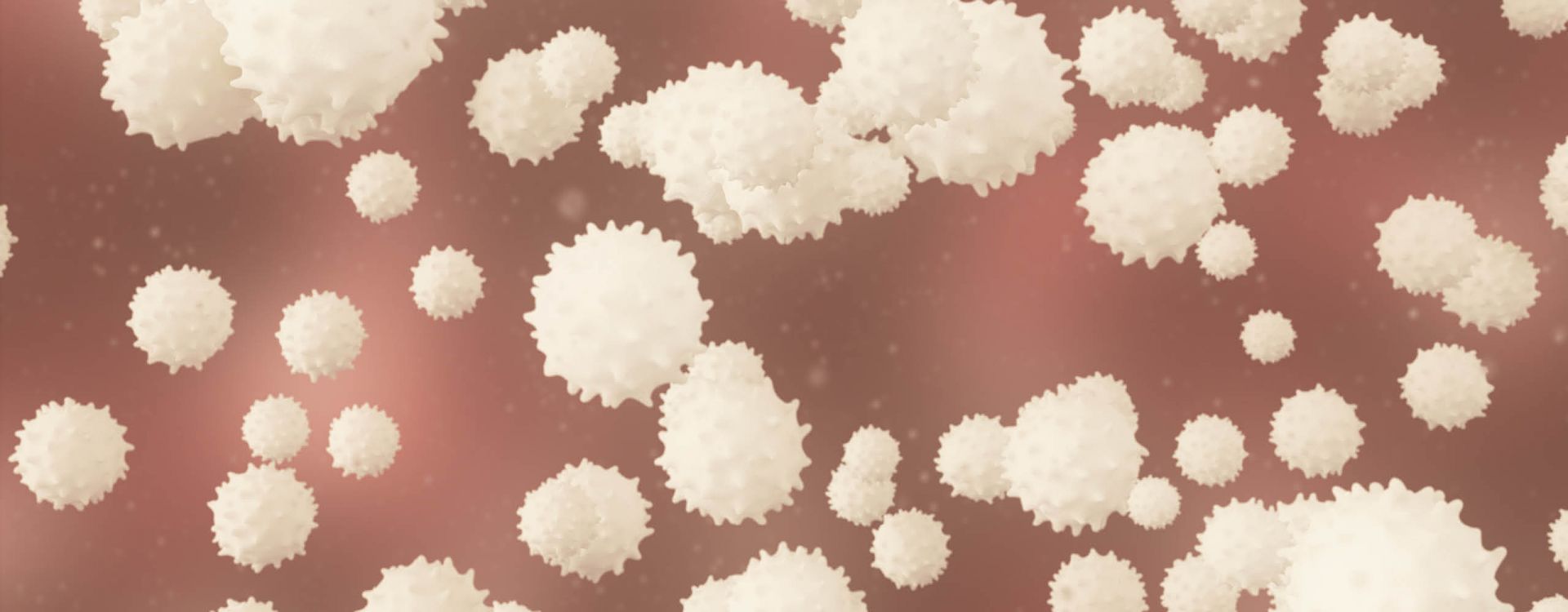Pregnancy doesn’t just change your body, it reshapes your entire ecosystem.
One of the most profound yet underappreciated changes is what happens inside your gut. As your hormones surge, your immune system adjusts, and your baby develops, the trillions of microbes living in your digestive tract undergo a dramatic shift [*]. These microscopic changes, though invisible, play a massive role in both your experience of pregnancy and your baby's early development.
The gut microbiome is now recognized as a key player in maternal-fetal health, influencing everything from nutrient absorption to inflammation, metabolism, and even emotional well-being [*]. Research into the microbiome is growing rapidly, revealing just how much your gut flora can affect both you and your baby.
In this article, we’ll break down what the gut microbiome is, how it changes during pregnancy, and what you can do to support it. Whether you're expecting your first child or your third, this guide will give you science-backed tools to nurture your gut - and by extension, your growing baby.
What Is the Gut Microbiome?
The gut microbiome refers to the massive and complex community of microorganisms — mainly bacteria, but also fungi, viruses, and protozoa — that live inside your gastrointestinal tract [*]. These microbes outnumber your own cells and contain over 100 times more genetic material than your human DNA [*].
Most of them reside in the colon, where they [*]:
- Digest fiber and resistant starches
- Synthesize essential vitamins (e.g., K, B12, folate, biotin)
- Regulate the immune system
- Produce short-chain fatty acids (SCFAs) like butyrate, acetate, and propionate
- Strengthen the intestinal barrier and prevent “leaky gut”
- Communicate with your brain via the gut-brain axis
These microbes aren’t just passive passengers in your body. They are constantly interacting with your immune system, influencing how you break down and absorb nutrients, and even affecting your mood and cognitive function [*]. A healthy gut microbiome is diverse, meaning it contains a wide variety of species, and balanced, meaning no single type of microbe dominates [*].
In pregnancy, the gut microbiome becomes a finely tuned system, adapting to meet the increased demands of supporting two lives [*].
How Pregnancy Affects the Gut Microbiome
Pregnancy causes a significant shift in gut microbiome composition — especially by the third trimester — to meet the metabolic needs of mother and baby. These changes impact immunity, digestion, weight gain, and fetal development [*].
Hormonal Changes
Your hormonal landscape during pregnancy is nothing short of a transformation. Estrogen and progesterone surge, influencing everything from your mood to your muscle tone. including the smooth muscles of the digestive tract [*]. These hormonal shifts slow down digestion, which can lead to constipation but also gives your gut microbiota more time to interact with food particles [*]. This shift in environment alters which bacteria thrive, often favoring those that extract more energy from food.
Trimester-by-Trimester Shifts
One of the most fascinating findings from microbiome research is how different each trimester is in terms of microbial composition [*]:
- First Trimester: Microbial diversity remains relatively stable, similar to a non-pregnant state. However, subtle shifts begin as early as conception.
- Second Trimester: There is a gradual decrease in microbial diversity and a rise in bacteria associated with energy storage and fat gain, such as members of the phylum Actinobacteria.
- Third Trimester: A sharp increase in Proteobacteria — a group linked to inflammation and energy harvesting — prepares the body to store nutrients and support fetal growth. Diversity is lower, but the functional profile of the microbiome becomes more metabolically active.
These changes mirror a state similar to metabolic syndrome, which may sound negative but is actually beneficial in pregnancy: it ensures more energy is available for both you and your baby [*].
Immune Modulation
Your immune system walks a tightrope during pregnancy. It must tolerate a growing fetus while still defending against pathogens [*]. Gut microbes are key to this balance. They help regulate immune cell activity and reduce excessive inflammation by producing SCFAs and signaling molecules that keep your immune response appropriately dialed [*].
Disruptions to this process have been linked to pregnancy complications like preeclampsia, gestational diabetes, and even preterm labor [*][*].
Gut-Brain Axis and Mood
Did you know about 90% of serotonin is produced in the gut [*]? This neurotransmitter is essential for mood stability and emotional well-being. During pregnancy, gut bacteria influence the production and regulation of serotonin, dopamine, and GABA. An imbalanced gut microbiome may contribute to prenatal or postpartum mood disorders like anxiety or depression [*].
Why Gut Health Matters During Pregnancy
Digestive Health
Pregnancy slows down digestion due to hormonal effects on the intestines [*]. Add in the pressure from a growing uterus and dietary shifts, and you have a recipe for bloating, constipation, and heartburn. A balanced gut microbiome helps offset these effects by enhancing motility and breaking down hard-to-digest fibers.
Beneficial bacteria like Bifidobacterium and Lactobacillus produce enzymes that help ferment fiber into SCFAs, which support gut lining integrity, reduce inflammation, and keep bowel movements regular [*].
Immune Function
With 70% of immune tissue housed in the gut, it’s no surprise that gut health influences immune balance [*]. A robust microbiome helps reduce systemic inflammation and trains your immune cells to respond appropriately, preventing autoimmunity and improving resistance to infections [*].
This balance is critical not just for you, but also for your baby, whose immune development is shaped by microbial exposure starting in the womb and continuing after birth [*].
Blood Sugar & Gestational Diabetes
Researchers have found that specific microbial imbalances are linked to poor glucose control [*]. When diversity is reduced and inflammatory strains dominate, insulin resistance is more likely to occur [*]. This is particularly relevant in the second and third trimesters, when natural insulin resistance increases [*].
Maintaining a healthy gut may help reduce your risk of gestational diabetes and stabilize blood sugar levels throughout pregnancy [*].
Baby’s Future Health
Your baby inherits their first microbes from you. Whether through vaginal delivery or C-section, breastfeeding or formula, your microbial makeup becomes the foundation for theirs. Studies suggest that infants born to mothers with healthy microbiomes are less likely to develop [*]:
- Food allergies and eczema
- Asthma and respiratory infections
- Obesity and insulin resistance later in life
- Neurodevelopmental conditions such as autism spectrum disorder (though research is still ongoing)
Can You Take Probiotics During Pregnancy?
Yes — and in many cases, they help.
Research has shown that probiotic supplements are safe for most pregnant women and may improve outcomes such as digestion, immune health, and even birth weight [*]. Choose strains that have been studied specifically in pregnancy [*]:
- Lactobacillus rhamnosus GG: May reduce risk of eczema in infants.
- Bifidobacterium lactis: Supports regular bowel movements and immune health.
- Saccharomyces boulardii: A beneficial yeast that combats diarrhea and gut inflammation.
Always consult your provider before starting a new supplement, and choose products that are third-party tested for purity and potency.
Prebiotics: Feeding the Good Bugs
Probiotics are only part of the equation. Without the right fuel, beneficial microbes can't thrive. That’s where prebiotics come in. These are non-digestible fibers found in plant foods that feed your gut bacteria [*].
Top prebiotic-rich foods include [*]:
- Onions, garlic, and leeks
- Bananas (especially slightly green ones)
- Asparagus and Jerusalem artichokes
- Chicory root
- Whole oats and barley
Consuming these daily helps increase the production of SCFAs, which in turn support gut lining health, reduce inflammation, and regulate appetite.
Top Gut-Friendly Foods for Pregnancy
Include More Of [*]:
- Yogurt and kefir: High in probiotics and protein (opt for pasteurized versions).
- Leafy greens: Spinach, kale, and chard offer fiber, folate, and polyphenols.
- Berries and apples: Rich in antioxidants and pectin, a prebiotic fiber.
- Whole grains: Quinoa, brown rice, barley, oats — these support slow digestion and stable blood sugar.
Limit:
- Processed snacks and fried foods
- Sugary drinks and refined carbs
- Artificial sweeteners (linked to microbial disruption)
Pregnancy-Safe Ways to Support Gut Health
Incorporating these simple habits into your day can help support a healthy pregnancy [*]:
- Eat a variety of plant-based foods daily
- Stay hydrated with water and herbal teas
- Take a high-quality prenatal probiotic
- Walk 20–30 minutes a day
- Sleep at least 7 hours per night
- Practice mindfulness or gentle yoga to reduce stress
Gut Health and Pregnancy FAQ
How can I improve my gut health during pregnancy?
To improve gut health during pregnancy, focus on eating a diverse range of fiber-rich, plant-based foods, staying well-hydrated, and incorporating probiotics. Foods like fruits, vegetables, whole grains, and legumes feed beneficial gut bacteria, while fermented foods like yogurt, kefir, and sauerkraut can help introduce good bacteria into your digestive system.
Staying physically active and managing stress through techniques like yoga or meditation can also support gut health by improving digestion and reducing inflammation [*].
Does a mother's gut health affect the baby?
Yes, a mother’s gut health plays a key role in her baby’s development — especially during pregnancy and at birth. A healthy gut microbiome in the mother helps regulate inflammation, support nutrient absorption, and influence fetal growth. During vaginal birth, the baby is also exposed to the mother’s gut bacteria, which helps kickstart the baby’s own microbiome and immune system.
Research published in Nature Reviews Gastroenterology & Hepatology (2021) shows that imbalances in the maternal gut — caused by factors like poor diet, stress, or antibiotics — can increase the risk of health issues like allergies and obesity in children later on [*].
I’ve had IBS or digestive issues. Is my baby at risk?
Not necessarily. But it’s important to take proactive steps to support gut balance through diet, probiotics, and stress management [*].
Can antibiotics hurt my microbiome?
Yes. If you need them, ask your doctor about pairing them with a probiotic and increasing fermented and fiber-rich foods afterward [*].
What about heartburn meds?
Proton pump inhibitors (PPIs) can reduce beneficial bacteria. Only use as prescribed and consider probiotic support [*].
The Bottom Line
Your gut microbiome is one of your most powerful tools during pregnancy. It supports digestion, immune balance, mental health, and even shapes your baby’s lifelong health.
The choices you make today — from what you eat to how you move — can help create a microbial environment that benefits both you and your baby for years to come. And while the idea of managing trillions of bacteria might seem overwhelming, it really comes down to making consistent, nourishing choices that support your body’s natural rhythms.
Tuning into your gut health during pregnancy is more than a wellness trend; it’s a proactive, science-backed way to foster resilience in yourself and your child. Small actions today can lead to stronger immune systems, better digestion, and even reduced risk of chronic disease in the future. Your microbiome may be invisible, but its impact is anything but.
About MiracleCord
At MiracleCord, we help parents like you prepare for the future by preserving your baby’s stem cells through cord blood and cord tissue banking. Just like a healthy microbiome protects your baby from the inside out, stem cells are nature’s repair system - offering potential treatments for over 80 serious conditions, including leukemia, lymphoma, and immune deficiencies. Even if you're approaching your due date, it's not too late to protect your baby's future.
Enroll now by calling 888.743.2673 or enroll online to get started and receive your MiracleCord StemCare® cord blood collection kit. Secure your child’s health with science that’s already changing lives.
DISCLAIMER: THE INFORMATION ON THIS WEBSITE IS NOT INTENDED TO BE USED AS MEDICAL ADVICE.The materials and information contained on the MiracleCord website is provided for educational and informational purposes only, and is not intended to, and does not constitute, medical or other health advice or diagnosis, and should not be used as such. You should not use this information to diagnose or treat a health problem or disease. If you are seeking personal medical advice, you should consult with a licensed physician. Always consult with a qualified health care provider regarding a medical condition.




